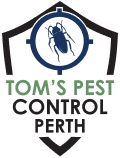Norway Rat Control Treatment in Perth: Destroy Invasions with Ease
Brown rats, also known as Norway rats, can grow up to 40 cm in length and are classified as rodents. These pests are commonly found in urban areas of Perth, where they easily adapt to their surroundings and can rapidly become a nuisance to homeowners. Tom’s Pest Control Perth is committed to helping residents tackle this problem effectively.
These rats pose various threats to homes and businesses, including property damage, contamination of food sources, and the spread of diseases. They can gnaw through wood, electrical wiring, and other materials, creating potential hazards such as fires or structural damage. Furthermore, brown rats can carry and transmit harmful pathogens, posing a significant health risk to humans and pets.
Taking immediate rodent control actions is vital to prevent further damage if you suspect a brown rat infestation.
Tom’s Pest Control Perth offers comprehensive solutions to address brown rat infestations. Our team of skilled professionals employs a range of humane and environmentally responsible methods to eradicate these unwelcome intruders. Additionally, we provide guidance on preventative measures to ensure long-lasting protection for your home or business.
By choosing Tom’s Pest Control Perth, you can rest assured that our experts will handle your brown rat problem efficiently and effectively, safeguarding your property and well-being.
Determining a Norway Rat
You can identify brown rats by their short, dense fur that covers their entire body except for their nose, tail, and ears. Typically, their fur colour ranges from grey to brown, with a lighter shade on their underside. Additionally, you may notice droppings or gnaw marks indicating their presence.
Brown rats reproduce prolifically, with males and females able to mate as early as three to four months old. They practice polygamy, with both sexes capable of mating with multiple partners.
Females can become receptive to mating again just 18 hours after giving birth, leading to up to seven litters yearly. The newborn rats remain in the nest for about three to four weeks.
They can potentially harm property and seriously disperse illnesses like leptospirosis and salmonella.
Norway rats are highly adaptable pests that can find food sources in urban and rural areas. They are opportunistic eaters and will consume various items, including human waste, farm crops, plants, lizards, chicks, and other rodents.
They often live in burrows beneath shrubs and sewer systems, constructing intricate tunnel systems and nests made of shredded materials for protection from predators and the elements. These pests can be found in many urban areas along the coast.
Norway rats live in the wild for two to three years but can live as pets for four or five years. These rodents risk human health and can cause extensive property damage.
Proper waste management and professional pest control services are necessary preventative measures for controlling Norway rat infestations.
How To Discover a Norway Rat Infestation?
Detecting a brown rat infestation as soon as possible is essential to prevent it from becoming a more significant problem. Here are some signs to watch out for:
- Droppings – Brown rat droppings are usually black and shiny, measuring between 0.64 to 1.27 cm long. You may find them near food sources, water, and shelter.
- Footprints – Look for footprints and tail marks measuring around 1.91-2.54 cm, which may be visible on dusty surfaces or mud. Additionally, smudge marks from their oily fur may be on pipes, beams, and support pillars.
- Urine – The urine can be identified by its distinctive smell and appearance. Under ultraviolet light, it glows blue and white. Look for dry and wet urine stains near food sources or rat runways.
- Gnawing marks – Brown rats have powerful teeth and jaws, and they can cause significant damage to structures and materials. Look for new gnawing marks, which are rough, and older ones, which are smooth and greasy.
- Burrows – They create extensive networks of burrows under plant growth, building foundations, and near trash areas. Look for signs of digging or disturbances in the soil and holes in walls or foundations.
How To Handle Norway Rat Infestation?
It’s essential to act quickly when suspecting a Norway rat invasion as they reproduce quickly. In addition, preventing their entry by blocking openings, fixing leaks, storing food in airtight containers, and maintaining cleanliness can help.
If you suspect an infestation, it’s crucial to contact Tom’s Pest Control Perth right away. Our expert pest control specialists have the knowledge and skills to safely eradicate Norway rats from residential and commercial properties using modern and safe methods.
Eradicate Rodents from Your Home or Offices
We aim to help you remove these pests with speed and effectiveness. Contact us to learn more about our Norway rat control services in Perth.
Frequently Asked Questions
How do I get rid of Norway rats permanently?
To remove Norway rats permanently, it’s essential to take proactive measures such as sealing off all entry points and eliminating potential food sources. In addition, you can use traps, baits, and repellents to control their population. Finally, seeking professional pest control services can also ensure a complete and effective solution to your Norway rat infestation.
Do Norway rats come out at night?
Norway rats are nocturnal creatures, active during the night. They come out during the day when they’re hungry or feel threatened. So, taking precautionary measures like disposing of garbage properly and avoiding leaving food outdoors to prevent them from entering your property is essential. Look for signs of rat infestation, such as droppings, gnaw marks, or scurrying sounds.
What keeps rats away naturally?
There are various natural remedies to keep rats away, such as using peppermint oil, planting mint and other herbs that rats dislike, and using natural deterrents like mothballs and ammonia. Maintaining cleanliness and proper waste management practices can also help prevent rats from being attracted to your property.


